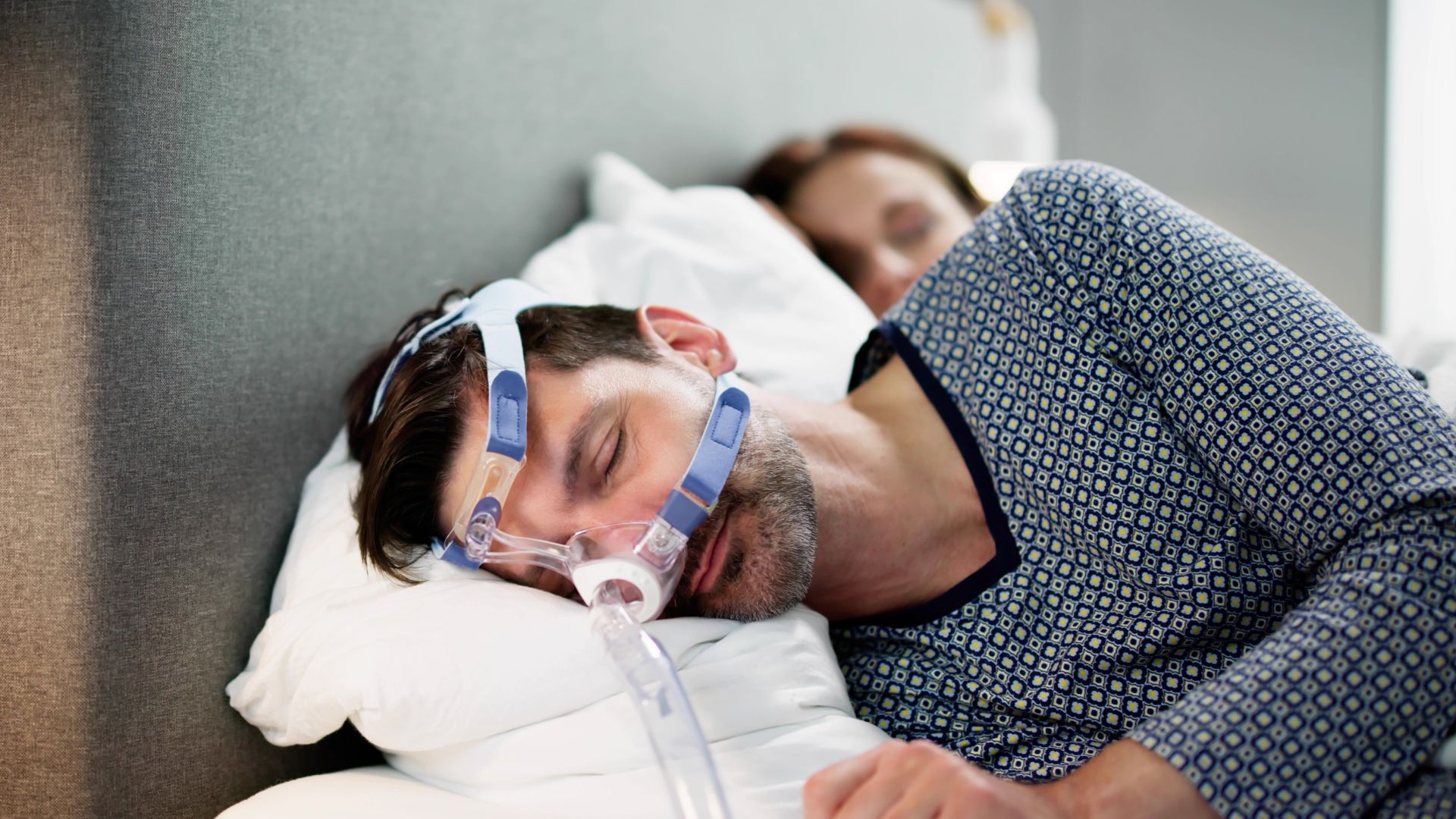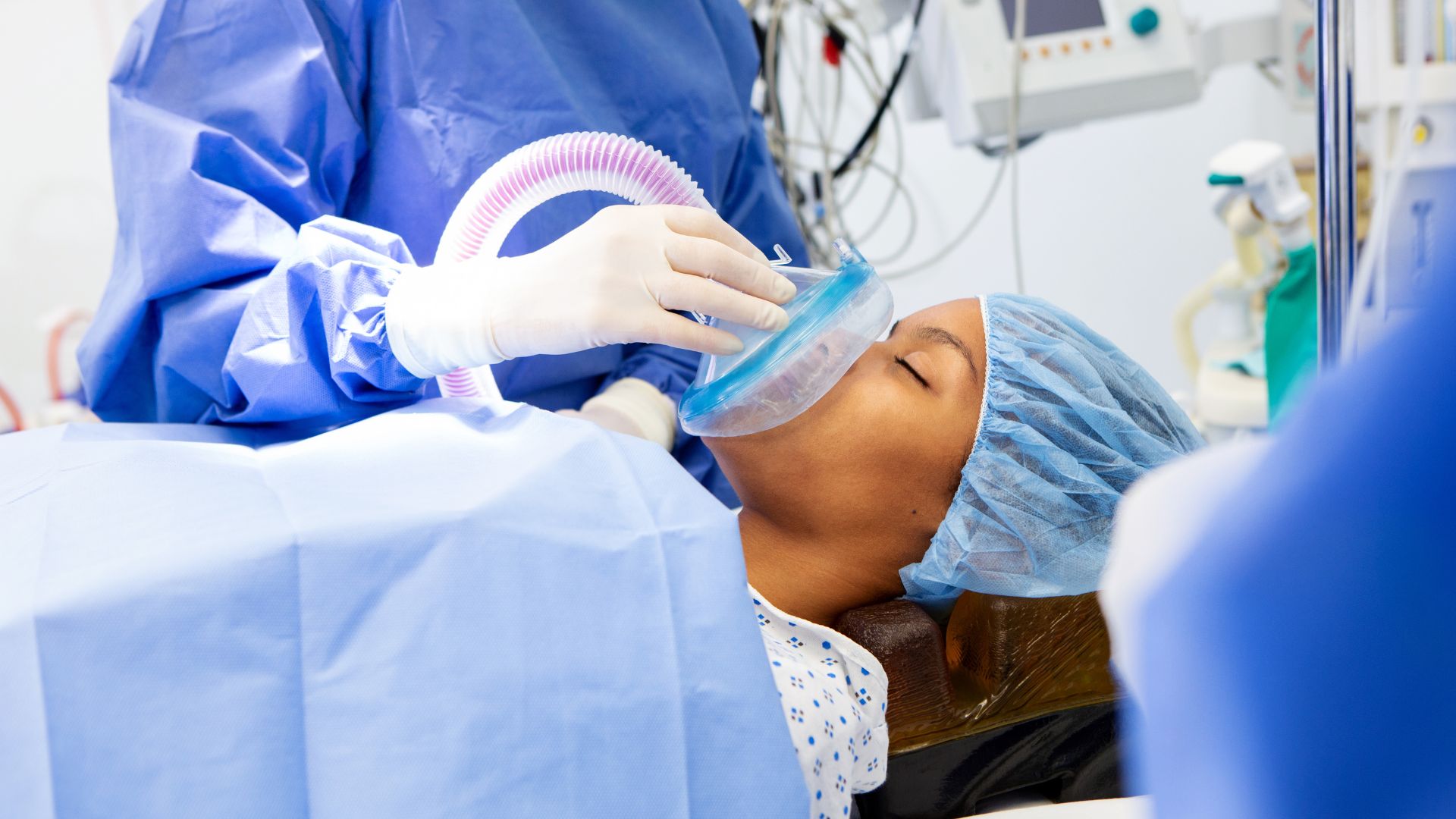You brush, you floss, you see your dentist. But what if the most significant threat to your health wasn’t a cavity, but something happening while you’re asleep?
Obstructive Sleep Apnea (OSA) is often called a “silent” problem. But if you know what to look for, your body—and your oral health—are sending loud, clear signals.
Snoring is not normal. Waking up exhausted despite a “full night’s sleep” is not normal. And these issues are intimately connected to the health of your mouth, jaw, and airway. At Atlanta Oral and Facial Surgery, we’re exposing this critical link and connecting patients with solutions that can literally save lives.
The Nightly Struggle: What Really Happens When You Sleep
Obstructive Sleep Apnea occurs when the muscles in the throat relax too much during sleep, collapsing the airway and cutting off your breath. Your brain, panicking from a lack of oxygen, jolts you awake to gasp for air. This cycle can repeat hundreds of times a night, without you ever consciously remembering it.
The consequences are severe:
- Strain on Your Heart: This constant oxygen deprivation dramatically increases your risk of high blood pressure, heart attack, and stroke.
- Chronic Fatigue: Your brain never enters the deep, restorative stages of sleep, leading to daytime exhaustion, brain fog, and irritability.
- Metabolic Havoc: OSA is strongly linked to Type 2 Diabetes and weight gain.
The Oral Health Red Flags Your Dentist Might See First
Your oral surgeon or dentist is often on the front lines of detecting sleep apnea. They see the physical evidence every day:
- Bruxism (Severe Teeth Grinding): Your body’s instinctual response to a blocked airway is to grind your teeth to jolt the jaw forward and open the passage. This can wear teeth down to stumps.
- A Scalloped Tongue: When the tongue is too large for the mouth or presses forward to keep the airway open, it presses against the teeth, creating wavy indentations on the sides.
- Worn Tooth Enamel & Broken Restorations: The extreme force of grinding can crack teeth, break fillings, and destroy crowns.
- TMJ and Jaw Pain: The constant strain on the jaw joint from clenching and grinding leads to chronic pain, headaches, and limited jaw movement.
- Chronic Dry Mouth: Breathing through your mouth all night dries out oral tissues, significantly increasing your risk for cavities and gum disease.
Beyond the CPAP: The Oral Surgeon’s Role in Sleep Apnea Treatment
While CPAP machines are a common solution, many patients find them uncomfortable and can’t tolerate them. This is where the expertise of an oral and maxillofacial surgeon becomes a game-changing alternative.
For the right candidate, Oral Appliance Therapy is a highly effective solution. A custom-fitted, mouthguard-like device, provided by a qualified professional, gently repositions the jaw and tongue to keep the airway open during sleep. It’s quiet, portable, and non-invasive.
In more complex cases, surgical procedures can address the underlying structural issues causing the blockage, such as:
- Correcting a deviated septum.
- Reducing enlarged turbinates in the nose.
- Repositioning the jaw to open the airway (Maxillomandibular Advancement).
You Deserve a Good Night’s Sleep and a Healthier Future
Ignoring sleep apnea is not an option. It’s a progressive, dangerous condition. But the good news is that it is also highly treatable.
Stop Guessing About Your Sleep.
Your oral health holds the clues. Let us help you decode them.
Take the first step towards restful nights and healthier days.
Email [email protected] to schedule a Sleep Apnea Screening Consultation with an Atlanta specialist. Discover if an oral appliance or other solution is your key to reclaiming your sleep and your health.
Don’t just sleep. Heal.



